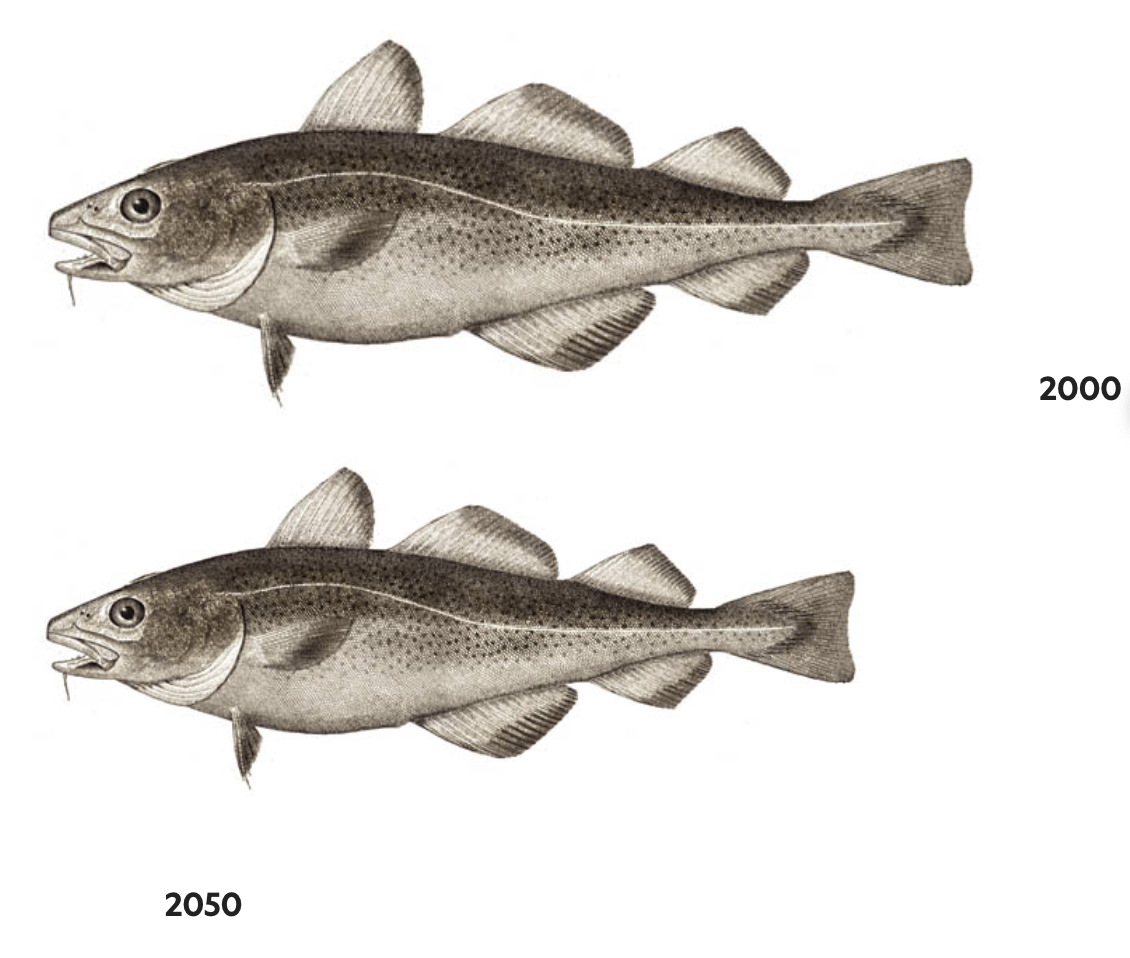Warming up to shrinking fish
By Carl Safina and Elizabeth Brown
A few years ago, some scientists at the University of British Columbia were thinking about how climate change would affect fish. Climate change results from the collection of carbon dioxide in the atmosphere from our burning of fossil fuels (oil, coal, gas), which causes the earth to warm. The scientists wondered out loud if warming could affect fish growth. Warmer waters hold less oxygen than cold water. And, as the water warms, fish need more oxygen to perform daily activities, like feeding. They asked how these competing factors would affect fish size: Would a fish be able to grow large as warmer water causes oxygen concentration to drop even as the fish’s oxygen needs increase?
And so, they set up a model to look at how predicted rises in ocean temperatures will change fish body size and fish distributions between the years 2000 to 2050. They input information on distribution, growth rates, temperature preferences, etc. for over 600 marine fish species (including groupers, cods, flounders, salmon, and other commercial species).
Graph from NOAA, National Climate Data Center ncdc.noaa.gov/indicators
The model confirmed the scientists’ predictions: warming will limit the size fish grow to. This means SHRINKING fishes! By 2050, warming will shrink the average maximum body weight of fishes by 14-24% globally – a fairly large amount! Most of the shrinkage will happen in tropical and mid-latitude regions. Fish will also shift their distributions towards the poles. So, smaller tropical fish will displace larger fish found at higher latitudes. Warming has already affected some fish species. In the North Sea, for example, increasing ocean temperatures have reduced the body size of haddock.
What will shrinking fish mean for marine ecosystems? Smaller fish produce less offspring than larger fish. So, we will have less productive fish populations. Also, because body size determines predator-prey relationships, it will change marine food webs. Bigger fish can consume bigger prey. And, they have fewer predators than small fish.
Our fisheries will suffer too. Fishermen will catch smaller fish. This will in turn reduce the global fish supply. This adds to the problems our fisheries face from overfishing, pollution, and habitat degradation.
To make matters worse, climate change could affect fish species in other ways too. In addition to warming, climate change makes our oceans more acidic. Other scientists found that ‘ocean acidification,’ could reduce the survival of fish eggs and larvae and impair a fish’s ability to detect predators.
The message is clear: climate change threatens marine fishes and the stability of our global fisheries. This underlines yet another reason we must urgently reduce carbon emissions and utilize clean energy to power our future. Further, fishery managers must develop management strategies that incorporate the effects of a changing environment.
Check out the article about shrinking fish at Nature Climate Change.

